Lawrence University geologist Marcia Bjornerud has been named a Fellow of the Wisconsin Academy of Sciences, Arts & Letters for 2016. She is the first Lawrence faculty member to be accorded that honor.
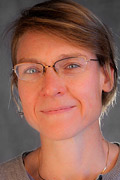
Established in 1981, the Fellows program represents the highest level of recognition conferred by the Wisconsin Academy of Sciences, Arts & Letters. Drawn from a pool of statewide nominees, Fellows are elected for their extraordinary levels of accomplishment in their fields as well as lifelong commitments to intellectual discourse and public service.
One of 11 new Fellows named to the Academy in perpetuity, Bjornerud will be publicly recognized Sunday, April 17 at an awards ceremony in the Pyle Center on the University of Wisconsin–Madison campus.
Bjornerud, the Walter Schober Professor of Environmental Studies and Professor of Geology at Lawrence, joined the faculty in 1995. Her scholarship focuses on the physics of earthquakes and mountain-building. She combines field-based studies of bedrock geology with quantitative models of rock mechanics. She has conducted research in high arctic Norway (Svalbard) and Canada (Ellesmere Island) as well as mainland Norway, Scotland, New Zealand and the Lake Superior region.
“Marcia Bjornerud is an outstanding member of the Lawrence faculty and a great contributor to the quality of life in Wisconsin,” said Provost David Burrows. “Her election recognizes an important connection between academic research and scholarship and the scientific understanding of Wisconsin’s environment. The election to the Academy is richly deserved and is a symbol of the collaboration between Lawrence and the citizens of Wisconsin.”
Linda Ware, president of the Wisconsin Academy Board of Directors, said the Fellows program is a way to “honor the genuine treasures we have in this state—extraordinary people who show us the best of Wisconsin.”
“Every two years, we scan the state to find its most outstanding and creative people,” said Ware. “As part of our increasingly statewide reach for interdisciplinary excellence, we’re proud to recognize these brilliant and focused citizens who inspire people in Wisconsin and beyond.”
“[Marcia’s] election to the Academy is richly deserved and is a symbol of the collaboration between Lawrence and the citizens of Wisconsin.”
— Provost David Burrows
The founding director of Lawrence’s program in environmental studies, Bjornerud was named a Fellow of the Geological Society of America in 2003 and twice was named a Fulbright Senior Scholar, first in Norway (2000-2001) and then New Zealand (2009). She was named Outstanding Educator in 2011 by the Association of Women Geoscientists and was recognized with Lawrence’s Excellence in Scholarship or Creative Activity Award in 2007.
She is the author of the 2005 book, “Reading the Rocks: The Autobiography of the Earth,” and is a regular contributing writer to the New Yorker’s science and technology blog.
In 2012, Bjornerud was lead author on a pro bono report for the Great Lakes Indian Fish and Wildlife Commission on the geology of the Gogebic Range. The report was designed to serve as a free public document to provide baseline information about the potential effects of an open pit mine on the waters of the Bad River and the wild rice stands in the Kakagon Sloughs.
She earned a bachelor’s degree in geophysics from the University of Minnesota and master’s and doctoral degrees in structural geology from the University of Wisconsin-Madison.
About Lawrence University
Founded in 1847, Lawrence University uniquely integrates a college of liberal arts and sciences with a nationally recognized conservatory of music, both devoted exclusively to undergraduate education. It was selected for inclusion in the book “Colleges That Change Lives: 40 Schools That Will Change the Way You Think About College” and Fiske’s Guide to Colleges 2016. Engaged learning, the development of multiple interests and community outreach are central to the Lawrence experience. Lawrence draws its 1,500 students from nearly every state and more than 50 countries.
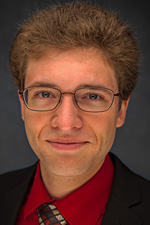
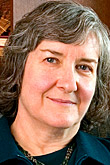
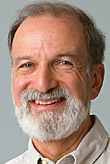

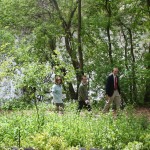
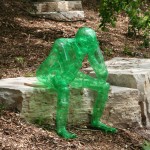
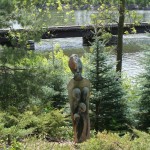
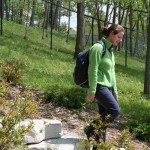

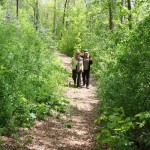
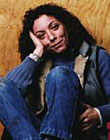
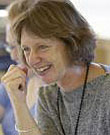
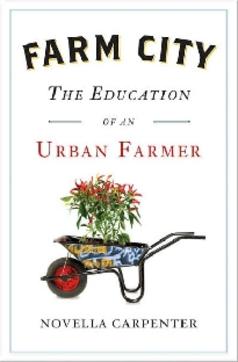 Taking a page from Freshman Studies, Green Roots is sponsoring a special 1-unit course for Term III under the umbrella of Topics in Environmental Studies that will feature a campus community read of the 2009 book
Taking a page from Freshman Studies, Green Roots is sponsoring a special 1-unit course for Term III under the umbrella of Topics in Environmental Studies that will feature a campus community read of the 2009 book